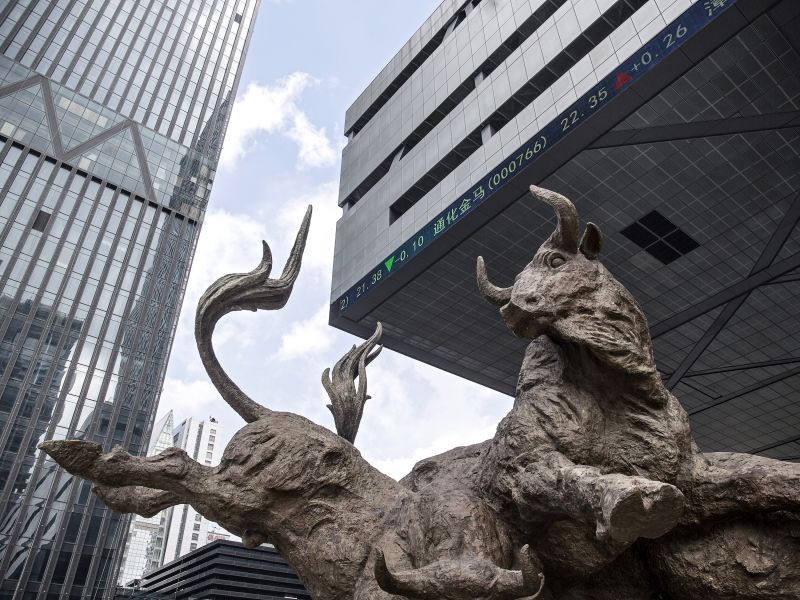
China Takes Measures to Stem Stock Market Rout

China's top securities regulator has announced new measures to limit short-selling and curb the ongoing stock market rout. This article explores the impact of these measures and the challenges that remain in the Chinese stock market.
New Measures to Limit Short-Selling
In response to the protracted stock market rout, China's top securities regulator has taken decisive steps to limit short-selling and stabilize the market.
The Shenzhen stock exchange is the second-largest in mainland China after Shanghai.
The China Securities Regulatory Commission announced on Sunday that it would 'fully' suspend the lending of restricted shares on bourses in mainland China. These new curbs, which came into effect on Monday, will impact shares held by company employees or strategic investors, prohibiting them from being traded in the stock market for a certain period.
Short sellers typically borrow shares from a broker and sell them with the hope of buying them back at a lower price before returning the shares. The new measures aim to disrupt this practice and restore stability to the market.
Market Response and Investor Sentiment
The impact of the new measures on the stock market was met with mixed reactions. While the Shanghai Composite Index saw a modest increase, the Shenzhen Component Index experienced a decline. Investor sentiment has also been affected by external factors, such as the recent court order for Evergrande to liquidate, signaling challenges in the property sector.
Despite the market's initial response, analysts remain cautious about the effectiveness of the new measures in addressing the underlying issues that have contributed to the stock market rout.
Challenges and Unprecedented Interventions
Chinese authorities have intensified their efforts to mitigate the stock market rout, including considering ordering state-owned enterprises to invest in the market and evaluating the performance of state-owned company heads based on stock market value.
Additionally, the National Administration of Financial Regulation has pledged to open China's financial industry to international investors, while the People's Bank of China has announced plans to provide long-term liquidity to the economy through a reduction in cash reserves held by banks.
These unprecedented interventions reflect the magnitude of the challenges facing the Chinese stock market and the determination of authorities to stabilize the situation.








